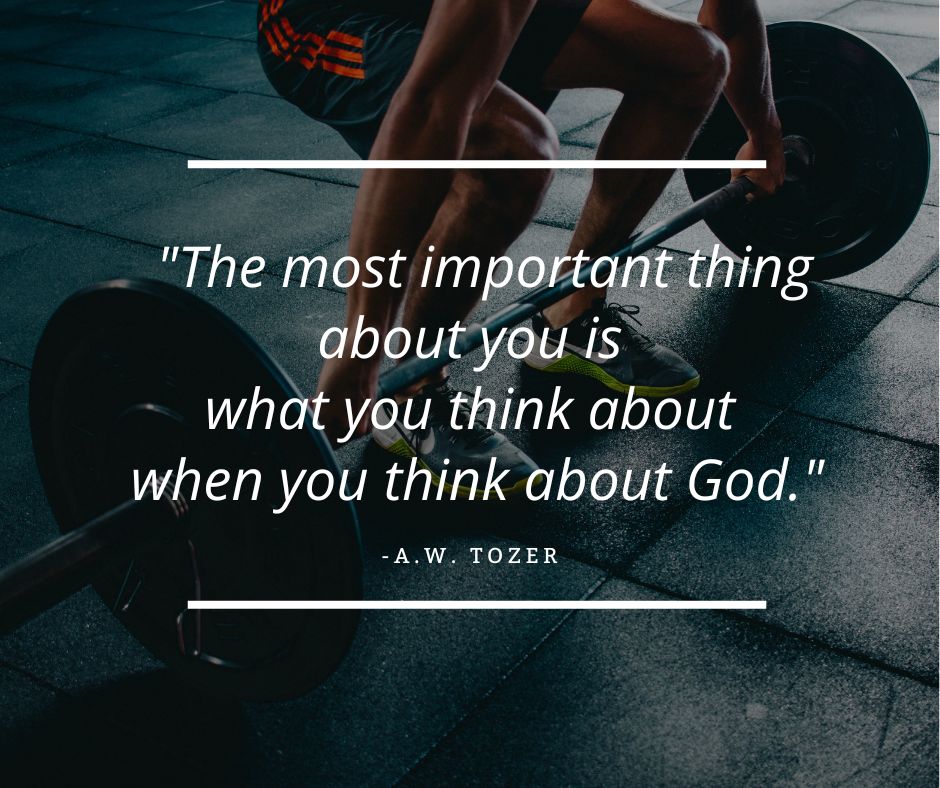Building a Stronger Faith With the PsalmsSýnishorn

What comes to mind when you think about God's character?
I want you to begin by identifying three to five words you would use to describe God. These aren't words others would tell you, but you don't believe them. I want you to pick three to five words of your own to describe your view of God.
Really - do it right now.
We've got time to wait.
Do you have those words?
Please don't go on without them.
Once you have them, I want you to consider one of the most famous quotes from one of the most famous Christian writers of the 20th century.
A.W. Tozer once wrote, "The most important thing about you is what you think about when you think about God."
Our view of God is critical because it shapes how we relate to God and function in the world.
To strengthen your faith in God, you must be honest about how you're currently relating to Him.
Several years ago, Skye Jethani wrote a best-selling book, With: Reimagining the Way You Relate to God. In the book, he explored four ways of relating to God. As I share them, I encourage you to consider which one may describe you.
The first is "Under God." In this pattern, you observe rituals and follow commands to please God like He is a manager at your office.
The second pattern is "Over God." In this pattern, you find the principles and solve the problems, all to get life to work out the way you want.
The third pattern is "For God." In this pattern, you do something significant and make your life count to perform or fulfill a purpose that gives your life meaning and value.
Finally, the fourth pattern is "From God." In this pattern, you look to God as somewhere between a cosmic butler and a divine genie, where God is the source from which you seek to draw out what you need when you say the magic words.
While all of these may have helpful and truthful elements, they all break down because they are about fear and control.
On the other hand, Psalms gives us very different illustrations of how to live with God. While the popular approach to Psalms may feel therapeutic, safe, and comforting, the actual content of each psalms is far different. Over 40% of the psalms are laments - desperate and intense songs of anguish and grief. We're going to dig into the meaning of the word lament tomorrow. But now, let's be clear. There's no fake, happy-go-lucky faith in Psalms. What you read in this book is raw, gritty, and honest.
The first principle you need to know to build a stronger faith is that you can be honest with God. Whatever you're carrying today - guilt, shame, lies, inadequacy, or even doubt - you need to express that to God.
Before you go to bed tonight, I want you to pray the same prayer David prayed in Psalm 139:23-24. I want you to be honest with God and ask God to check out the corners and dark places in your heart. If you want a stronger relationship with God, you must be honest.
Tomorrow, we will examine what happens when we take the difficult stuff we carry to God. You may be surprised by what you find in the Psalms.

Ritningin
About this Plan

A strong faith can feel impossible when you are overwhelmed with doubts and questions. That kind of faith seems impossible today. But, what if you didn't have to wait for that day? What if it were available now? Today, you can build a stronger faith when you follow the pattern found in the Psalms. This plan will show you how faith and doubt can co-exist together.
More








